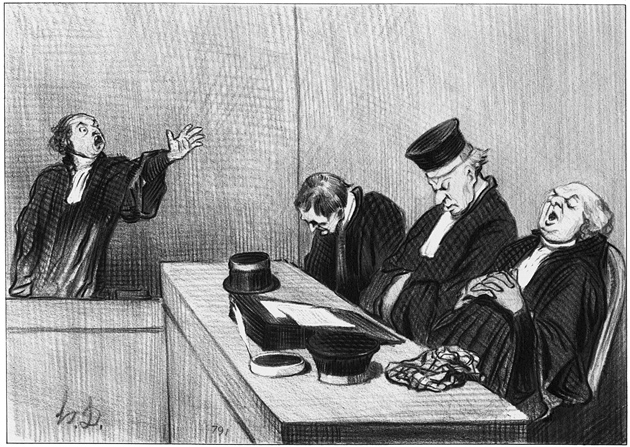In response to:
The "Devastating" Decision from the February 25, 2010 issue
To the Editors:
It is distressing to see that so subtle and sophisticated an analyst of the Supreme Court as Ronald Dworkin has succumbed to the all too infectious disease of impugning the motives of those with whom he differs [“The ‘Devastating’ Decision,” NYR, February 25].
Dworkin vigorously differs with the Supreme Court’s ruling in the Citizens United case. Not content to rely on his arguments on the merits, he offers two theories to explain how the majority of the Court reached its decision. One possibility, he suggests, and a supposedly “generous” one at that, is that the opinion reflects the majority’s “instinctive favoritism of corporate interests”; the other is that the opinion was drafted to favor the interests of the Republican Party. Dworkin does not entertain the possibility that the jurists reached their ruling for the reasons, rooted in the First Amendment, that they expressed.
This is not only unworthy criticism but omits a long list of others, whose views were generally far from the Court’s current conservative majority, who agreed with them on this issue. One would hardly suspect from Dworkin’s accusations that President Harry S. Truman had vetoed the very section of the Taft-Hartley law in 1947 that first banned corporate and union independent expenditures during election campaigns on the ground that the bill posed a “dangerous intrusion on free speech.”
One would not imagine that liberal Justices Rutledge, Black, Douglas, and Murphy—not exactly the Court’s greatest defenders of corporate interests—could have concluded in 1948 that the statute was unconstitutional because any “undue influence” obtained as a result of those expenditures was outweighed by “the loss for democratic processes resulting from the restrictions upon full and free public discussion.” And Dworkin hardly alerts the reader to the fact that nine years later, Justice Douglas, joined by Chief Justice Warren and Justice Black, again urged that the ban was unconstitutional, observing that the argument that some speakers were “too powerful” could not serve as a “justification for withholding First Amendment rights from any group—labor or corporate.”
Today, the more conservative members of this Court hold similar views to the more liberal jurists of a generation ago. That does not make them right, although I think they are. It does counsel caution on the part of those who differ with them from assuming that they can simply dismiss their arguments by attacking their supposed preconceptions or motives.
Floyd Abrams
Cahill Gordon & Reindel LLP New York City
Ronald Dworkin replies:
I agree with Floyd Abrams that except in extreme cases critics of a Supreme Court opinion should focus on the legal arguments the justices offer, not their motives. But the Citizens United case, in which the five conservative justices ensured that big corporations can spend unlimited funds influencing federal elections, does seem an extreme case.
First, the reasoning the majority offered is, in my opinion, so poor as to suggest some motive other than a desire to reach the right legal result. Constitutional lawyers have offered a variety of theories of the point of the First Amendment but absolutely none of them would justify the majority’s result. (I will defend that claim in a future issue of the Review.)
Second, two of the justices in the majority—Chief Justice John Roberts and Justice Samuel Alito—had recently, in confirmation hearings, assured senators of their respect for established judicial precedent. Yet in this case they explicitly overruled both long-standing and recent Supreme Court decisions to reach their desired result.
Third, the conservative justices had recently rejected the expansive view of the First Amendment’s protection that they adopted in this case. In Morse v. Frederick, they condoned the punishment of a student who, on a public street, displayed a banner with an ambiguous but at least potentially political message. Roberts, writing for the conservatives, said that the message might also be interpreted as advocating illegal drug use and held that the ambiguity should be resolved against First Amendment protection. (In another recent case, the same justices had upheld the right of an anti-abortion group to broadcast a political message on the opposite assumption: that ambiguities should be resolved in favor of free speech.) We must also remember that the three conservatives who were then on the Court—Justices Kennedy, Scalia, and Thomas—joined the infamous Bush v. Gore decision that made George W. Bush president. Perhaps Abrams would agree with my judgment that that, too, was a politically inspired decision.
The Taft-Hartley Act is not apposite. No medium was available in 1947 that, like television today, would allow rich corporations to drown elections in money. In any case, the Taft-Hartley Act’s prohibitions were global—President Harry Truman, in his veto message, said that the act “might even prevent the League of Women Voters—which is incorporated—from using its funds to inform its members about the record of a political candidate.” The McCain-Feingold Act that the five conservatives declared unconstitutional banned only electioneering on television and only for sixty days before an election.
Advertisement
Floyd Abrams has had a distinguished career protecting an invaluable constitutional right. But we must take care not to convert the First Amendment from a matter of principle to a pointless mantra that subverts rather than sustains democracy.
This Issue
April 29, 2010




